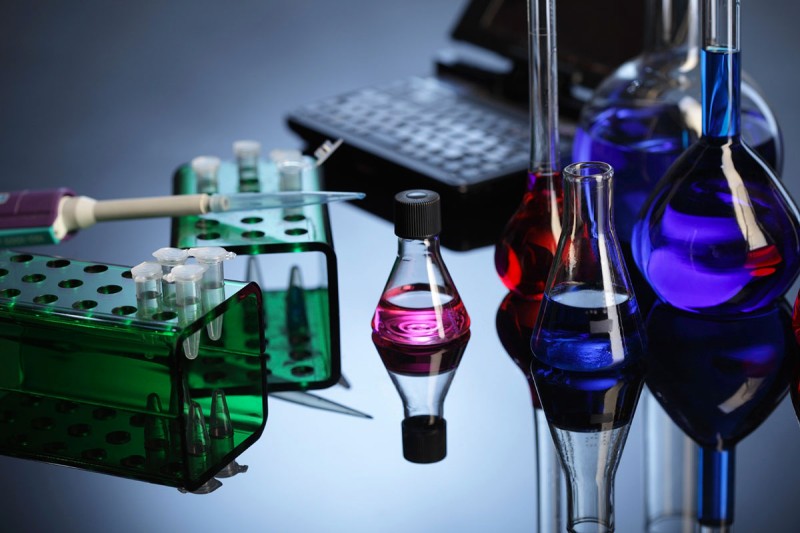
“Chemical biology is playing a growing role in biomedical research — and cancer research in particular — bringing new analytical techniques, molecular probes, and potential therapeutic leads,” explains Memorial Sloan Kettering investigator Derek Tan. To leverage this expanding importance, MSK has created a new Chemical Biology Program within the Sloan Kettering Institute.
Chemical biology involves the use of chemical techniques and tools, such as organic synthesis and drug design, to study and manipulate biological systems. Chemical biologists use chemical principles to investigate biological processes and create new functions.
“Biologists seek to understand complex biological systems, and chemists bring the unique ability to create new molecular tools to probe and modulate those systems, both for basic research and therapeutic applications,” explains Dr. Tan, who is chairing the new program.
The research of chemical biologists can include synthesizing biologically active small molecules, investigating the functions of proteins, dissecting cellular processes with chemical probes, or evaluating novel therapeutics in animal models.
An Impressive Legacy
“Chemical biology has a long, rich history in SKI, dating back to the institute’s inception in 1945,” Dr. Tan adds. “SKI further increased its commitment to chemical biology in 2000 by jointly establishing a new Tri-Institutional PhD Program in Chemical Biology with Weill Cornell Medical College and The Rockefeller University.”
The Chemical Biology Program is the first new SKI program in more than a decade. Its members were previously part of the Molecular Pharmacology and Chemistry Program, led by physician-scientist David Scheinberg, which has been renamed the Molecular Pharmacology Program.
A Commitment to Fostering Research
“The establishment of the Chemical Biology Program reflects the growing relevance of chemistry to the field of cancer research,” says SKI Director Joan Massagué. “It’s one more step in MSK’s commitment to fostering this scientific area under the outstanding leadership of Derek Tan.”
Five MSK chemists have moved under the umbrella of the new program. In addition to Dr. Tan, they are Gabriela Chiosis, Samuel Danishefsky, Yueming Li, and Minkui Luo. New faculty member Daniel Bachovchin, who recently completed a fellowship at the Broad Institute of Harvard and MIT, will join the program this fall. Also associated with the program are Tri-Institutional faculty members Sean Brady of The Rockefeller University and Hening Lin of Cornell University and core facility heads George Sukenick and Ouathek Ouerfelli, of MSK’s Nuclear Magnetic Resonance (Analytical) and Organic Synthesis Core Facilities, respectively.
Dr. Tan says there are plans to recruit several additional investigators as well. “This new program will bring increased emphasis to the important role of chemistry in cancer research,” he explains, “allowing new faculty recruitment and programmatic initiatives.”





